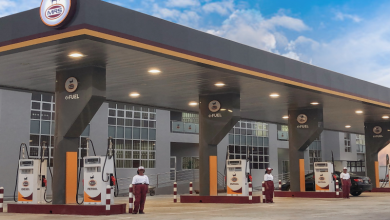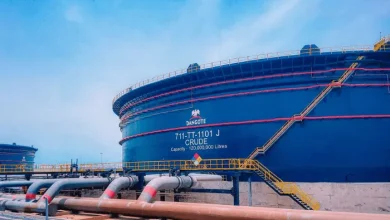
MTN Nigeria has announced the construction of West Africa’s largest data centre, featuring a 1,500-rack and Tier 4 infrastructure within the country.
A Tier 4 data centre is known for its complete fault tolerance, redundancy in every component, and an expected uptime of 99.995%, ensuring it can withstand various potential disruptions while offering the most reliable infrastructure.
Mohammed Rufai, Chief Technical Officer of MTN, shared with newsmen in Lagos that this development aims to enhance Nigeria’s digital infrastructure, meeting the growing data demands and digital needs of businesses and consumers.
“The data centre is poised to support MTN’s infrastructure and serve as a vital resource for businesses across Nigeria. Companies can now digitalize their operations and improve efficiency without maintaining their server rooms,” said Rufai.
He added that the new facility would enhance content delivery from major tech companies like Meta and Google, improving access speeds for Nigerian users. This local hosting of content is expected to significantly boost user experience and network efficiency.
Rufai highlighted the critical need for expanded data processing capabilities due to significant growth in data usage and the emergence of new services. “We see a high demand in the market, with data usage growing significantly. To cater to this demand and prepare for future growth, MTN is expanding and modernising its data centre capacity.”
The project is also seen as a catalyst for economic growth, providing scalable and adaptable infrastructure that will enable businesses, especially Micro, Small, and Medium Enterprises (MSMEs), to leverage cloud services and other digital solutions. This will drive innovation, efficiency, and competitiveness across various sectors of the economy.
Rufai emphasized MTN’s readiness to partner with startups and MSMEs, offering numerous opportunities for collaboration, particularly in cloud services. The data centre aligns with MTN’s Ambition 2025 strategy, reflecting the company’s commitment to Environmental, Social, and Governance (ESG) goals. The facility will eventually utilize efficient cooling systems and a combination of traditional energy sources, gas, and renewable energy to reduce its carbon footprint.
“Up to 60% of the power consumption of a typical data centre in our climate is for cooling. MTN’s highly efficient systems will ensure we meet sustainability targets,” Rufai said.
As Nigeria’s digital landscape advances, this new data centre marks a significant milestone, capturing a continued drive for innovation, quality, and growth. It aims to provide improved services, economic benefits, and a robust digital infrastructure for the future.





